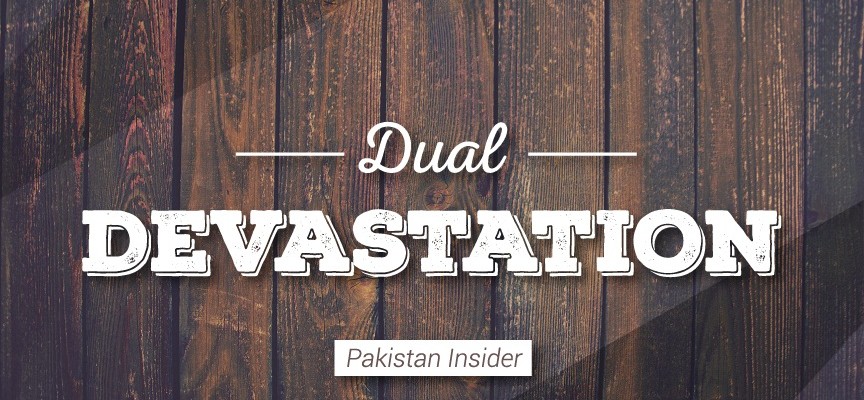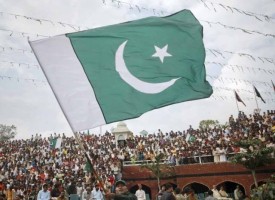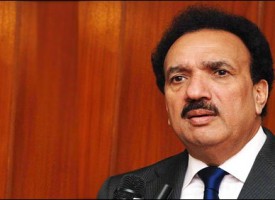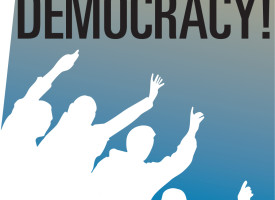Politics in Pakistan is plagued with corruption, nepotism, self interest and several multi dimensional aspects of immoral practices, but this is high time we recognize that religion in Pakistan is equally plagued with Politics and Politicians. Since more than a decade the social divide based on religious grounds have widened to a large degree, while there is less than no doubt about the political elite adapting to self-inclined religious narratives for personal glory and in quest for acquisition of political power. Power play over sectarian divide, where each political party has aligned to a specific religious or sectarian school of thought has fanned the crisis into another low. Each political party draws its power from each affiliated religious group, while each religious group draws its power from the associated political party. Whereas, the entire power producing apparatus runs on the formula of divide and rule, for instance PMLN is popularly known for drawing its power from the Saudi Arabia, while PPP from the Iran, each having own religious meaning attached. Similarly other less influential religious political parties have associated themselves with each school of thought, utilizing hate-speech and counter-narratives to win support over the other.
Before moving forward we need to re evaluate the fact that Pakistan as a society is primitive society traditionally like those from medieval times, where religion hold a position of great significance so much so that social dealings, economic relations, personal, professional bonds are shaped by the religious orientation of an individual. Therefore, it is relatively a state of greater vulnerability, giving way to manipulation on religious and sectarian grounds as social norms are deeply fragmented, and influenced by the division of religious thought barring a collective national progress. It is yet quite strange that over the period of time, public in Pakistan have significantly rose against the violence emanating from religious extremism, and has produced a more unanimous national narrative against the terrorism. Yet when observed from the closed quarters, personal, professional, family lives are significantly influenced from the religious orientation of each and become the source of either group unity or alienation.
Looking at the possibilities of what basically intrigues politics to get involved into religion or vice versa, it seems there are two major theories that could define this complex query into the minds of many political analysts.
Deprivation
Grievance born out of deprivation could be extremely fatal, either economic or political deprivation. Manipulation of cultural annihilation, or by highlighting collective deprivation politics find its way into the hearts and minds of people living in under-privileged conditions. From a more democratic point of view, to have adhered to the problems of minorities of the society in order to allocate them their rights is purely a sign of healthy democratic practices; however, in South Asian political scenario such practices usually carry a dangerous connotation.
Fear
One wonders if Winston Churchill realized the sweeping political accuracy of his assertion that “we have nothing to fear, but fear itself.” The fear of being deprived of something drives one to act aggressively, while the fear of being left out drive movements against prevalent forces. Although it is neither the only motivating factor for the political manifestation of religious violence, nor necessarily the most obvious, it is conspicuously present at all times. Whenever we ask why people harbour hatred, or why they are willing to kill or die for a cause, the answer invariably is fear. In the context of politicization of religion, there are two layers of fear that work it upto great manipulation and politically-motivated violence. First is the fear of losing power that continuously stimulates each political figure, and thus a constant search of power-gaining tactics remain active, either by hook or by crook, legitimate or illegitimate. Second, the fear that constantly worries the deprived groups of a society, especially religious groups, who fear suppression, annihilation or simply lack of freedom and rights for practicing of their faith, which instigates them to seek political asylum.
>>> Pankaj Mishra in How Democracy Kills in Indonesia and Pakistan published in Bloomberg view on March 3 2013 is a deeply insightful narrative on condition and causes of minority persecution in South Asia, South East Asia, including Pakistan, India and Indonesia. The article very aptly explains that democracy is undermined not so much by Islam, or for that matter Hinduism, as by ruthlessly self-interested elites who hijack the political process, using all available means to secure their dominance. Pankaj Mishra has stated that in both Pakistan and Indonesia, suppression and violation of rights is usually blamed over the country’s armed forces or their intelligence agency however, quite opposite is the truth. The political saboteurs, who portray themselves as saviors of humanity play a major role in instigating sectarian and minority related violence in order to keep their own place secure, they would not support a humanitarian and would rather chose to support the suppressers because latter is relatively a safer zone, and is likely to help them in their political adventures.
De-Islamization a way forward?
As pre determined by the political and religious elites, the country’s constitution declares state endorsing religion at the highest pedestal, inculcating policies highly influenced by the spirit of Sunni Islam, thus paves way for deprivation, fear, and subsequent manipulation in the form politicization of religion. In a country where interpretation of religion is widely controversial idea, while state holding a certain version of religion as an official interpretation imposing it in a multi-religion, multi-ethnic, multi-cultural society is a great policy mistake.
The word secular in Pakistan is like using a curse word, it is extremely demonized and has faced a prejudice from the conservatives of the country, while de-Islamization doesn’t really mean secularizing the country, yet it is familiar to it as it provides a more pluralist and inclusive system of governance, where state abstain from interfering into religious affairs in fact it makes a homogenous set of policies for all, prioritizing rule of law rather a religious orientation. This is exactly the kind of system Pakistan needs for to adopt.








No comments!
There are no comments yet, but you can be first to comment this article.